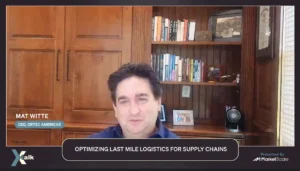US OEMs Must Streamline Existing Systems and Apply Volume-Driven Strategies to Cut EV Manufacturing Costs
As the electric vehicle (EV) market continues to expand, US original equipment manufacturers (OEMs) face significant challenges in reducing manufacturing costs to remain competitive. With growing global competition, particularly from countries like China that benefit from massive subsidies and a fresh industrial slate, the urgency for US manufacturers to adapt has never been more critical.
What strategies can US OEMs employ to effectively reduce costs and compete on the global stage in the EV market?
On an engaging episode of Expert’s Talk, Michael Davies, the Founder & Data Scientist at Green Econometrics, and Dr. Dave Tuttle, a Research Associate at the Energy Institute at the University of Texas at Austin explore several key strategies and perspectives essential for US EV manufacturers. Davies believes that large production volumes and the “experience effect” are key to reducing costs in the EV industry while Dr. Tuttle adds that US car makers also need to manage their existing systems while transitioning to EVs. They both suggest that strategic policies can help US manufacturers compete globally.
Key Takeaways:
- Volume-Driven Manufacturing: Increasing production volume is fundamental, as it distributes fixed costs over more units, potentially lowering the cost per unit.
- Leveraging the Experience Effect: Rapid assimilation and learning from existing manufacturing processes can drive efficiencies, reducing waste and improving productivity.
- Navigating Legacy Challenges: Unlike new players, US OEMs must balance innovation in EV technology with the management of existing legacy systems, a significant hurdle that requires strategic foresight.
- Policy Support: There’s a strong call for policy interventions that can help level the playing field, echoing the need for fair trade rather than protectionism.
- Anticipating Industry Consolidation: With numerous players in the market, especially in regions like China, industry consolidation is inevitable. US manufacturers need strategic investments to not only survive but thrive amidst these changes.
Article written by Sonia Gossai









